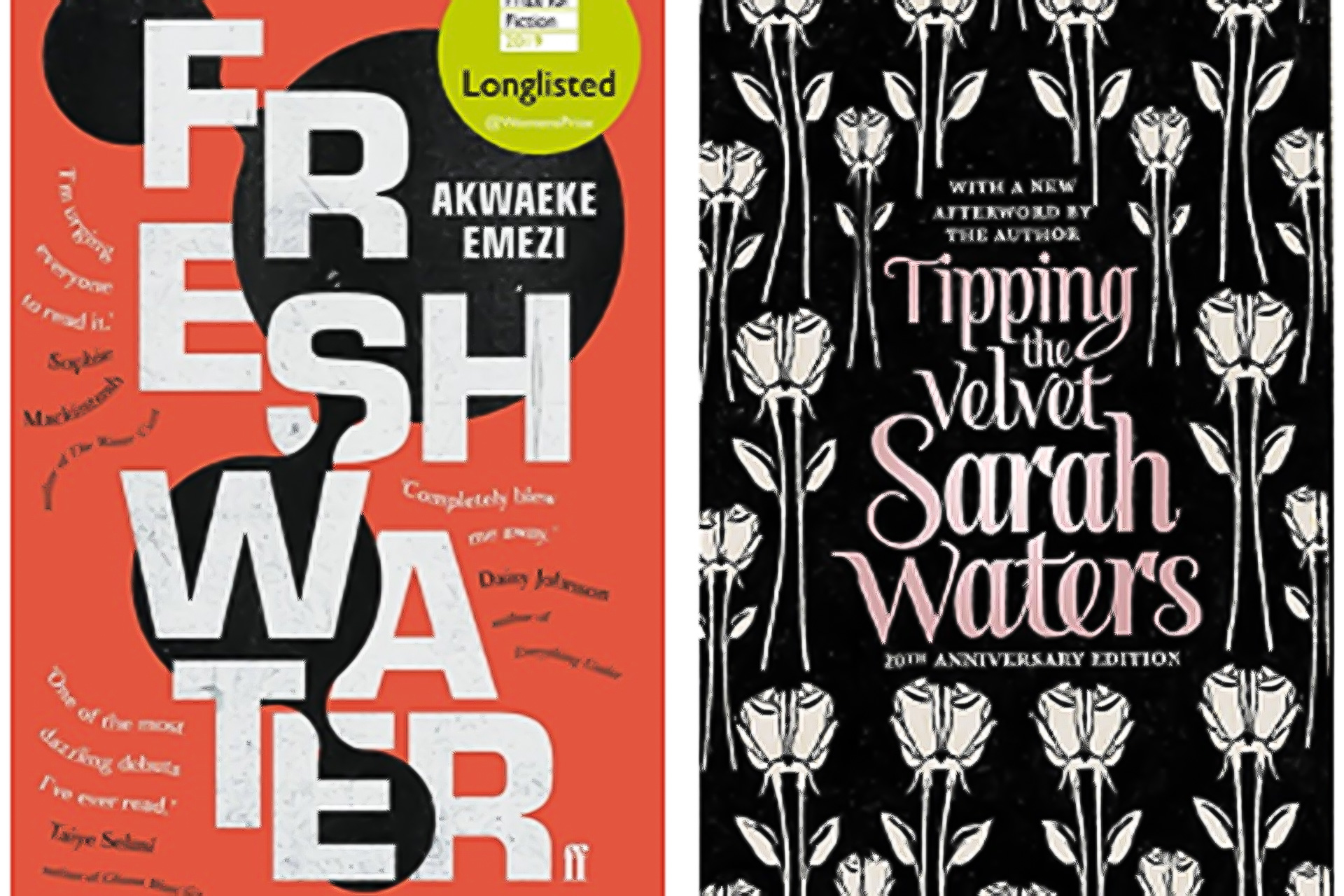To mark this year’s LGBTQ+ History Month, we have put together a list of some literary texts (and a few films), which we think will raise awareness about LGBTQ + issues and experiences.
A big thanks also goes to the students taking EN338: Right/Write to the World: Displacement, Social Movements, Political Action, convened by Bahriye Kemal. They have compiled an excellent list of LGBTQ+ further reading materials, some of which, as you can see, I featured in this blog. You can find their full-list at the bottom of the blog. Many thanks to Bahriye for letting me have access to the list and comments.
We start today’s post with a suggestion from Dr Michael Falk:
Such is Life is a magnificent book. It turns over the raw wounds of Australia’s colonial past, and Australia’s cult of virile masculinity. And it shows just why queerness is so often considered a crucial component of the best writing.
Sarah Waters, Tipping the Velvet (Virago 1998)
Tipping the Velvet is the debut novel by Sarah Waters, one of the most notable alumni of the School of English here at Kent. It is a daring neo-Victorian coming-of-age lesbian drama, which experiments with sexuality and its boundaries within social acceptability. The novel, to quote the author, is ‘the tale of a Victorian oyster girl who loses her heart to a male impersonator, becomes her partner in bed and on the music hall stage, and then, cruelly abandoned, has a spell as a cross-dressed Piccadilly prostitute and the sexual plaything of a rich older woman before finding true love and redemption with an East End socialist’. It is taught on EN713: The New Woman:1880-1920, convened by Dr Sara Lyons.
Virginia Woolf, Orlando: A Biography (Hogarth Press 1928)
Once described by Nigel Nicolson as the ‘longest and most charming love letter in literature’, Orlando: A Biography is famously inspired by Virginia Woolf’s relationship with Vita Sackville-West. At the heart of the book is the protagonist’s metamorphosis from man to woman, though over the course of the four centuries of Orlando’s life the narrative explores how sexual identities are fluid and constructed rather than fixed and innate. The book is taught on EN708 Virginia Woolf, convened and taught by Dr Derek Ryan.
James Baldwin, Giovanni’s Room (Dial Press 1956)
Giovanni’s Room is the second novel by James Baldwin, the African American writer and civil activist. Set in 1950s Paris, it deals with a young American man’s ‘forbidden love’ for an Italian bartender whom he met while waiting for his fiancée to return from vacation. This is the first African American novel openly to explore queer desire and, featuring all white characters, it is a reflection on racial and national identities. I received multiple recommendations for the novel, all of which commented on the powerful and poetic nature of its writing.
Please visit the LGBT+ Staff Network website to read Dr Declan Gilmore-Kavanagh’s blog on Giovanni’s Room.
Audre Lorde, The Cancer Journals (Aunt Lute Books 1980) and Sister Outsider (Crossing Press 1984)
Black feminist lesbian writer and activist Audre Lorde (1934-1992) challenged the movements she was involved in – the Women’s movement, the Civil Rights movement, and the Gay and Lesbian movement – to adopt more intersectional and inclusive approaches. Her work is taught across our undergraduate and postgraduate curriculum in the School of English. Her powerful speeches and essays ‘The Master’s Tools Will Never Dismantle the Master’s House’, ‘Uses of the Erotic: The Erotic as Power’ and ‘The Transformation of Silence into Language and Action’ (from Lorde’s Sister Outsider and The Cancer Journals) are taught in the UG modules EN342: American Power, American Protest, convened by Dr Jill Caddell and EN344: Black Girl Magic: Contemporary Feminisms, convened by Dr Claire Hurley.
The Cancer Journals (1980) was the first work to explore the impact of breast cancer on a black feminist lesbian’s life. Lorde was diagnosed with breast cancer in 1978 and had a mastectomy. Moving between private experience and political analysis, this lyrical manifesto addresses several topics including prosthesis, the politics of appearance, the power dynamics of the patient-doctor relationship, feminist and social struggle, and the function of cancer in a profit economy. It is taught in the MA module EN900: Illness and Disability in American Culture convened by Dr Stella Bolaki.
Please visit the LGBT+ Staff Network website to read Stella’s blog on Audre Lorde.
Helen Macdonald, H is for Hawk (Jonathan Cape 2014)
Macdonald’s award-winning memoir, which recounts her efforts to train a female goshawk Mabel, is curiously woven with the story of the ‘sadistic homosexual’ writer T. H. White, and his troubled relationship with the male goshawk he tried but failed to train. Macdonald’s fascination with White and Mabel’s hawkish desire and her longing to form interspecies ties with the bird makes H is for Hawk an interesting book to explore the intersections between animal studies and queer /trans studies. The book is taught on EN709 Animals, Humans, Writing, convened by Dr Kaori Nagai.
Moonlight (dir. Barry Jenkins 2016)
Moonlight is a coming-of-age drama of a young African-American man navigating through his masculinity and (somewhat closeted) homosexuality. This critically acclaimed and multi-award winning film is based on In Moonlight Black Boys Look Blue, the America playwright Tarell Alvin McCraney’s unpublished semi-autobiographical play. Click here to watch the trailer.
Eugene Lee Yang, ‘I’m Gay’ (2019)
‘I’m Gay’ is a 5-minute artistic piece written, directed, and choreographed by the South-Korean filmmaker, actor and activist Eugene Lee Yang. Eugene was mostly known as an entertainer and creator on YouTube’s (specifically Buzzfeed’s) Try Guys. In June 2019 he released this creative film to not only come out publicly as a gay man, but also to showcase the beauty and struggles of coming to terms with identifying as LGBTQIA+. The piece has been extremely impactful for the LGBTQIA+ community and informative to those who are not.
A full list of EN338 students’ suggestion for LGBTQ+ History Month.
Thanks again to the EN338 students, especially Rebecca Copsey, Kara Bunting, Mirianne Noba, Thipthara Yosrungrueng, Rochelle Mann, Niharika Gurung for your suggestions and comments. For further queries on the list, please contact Dr Bahriye Kemal [b.kemal@kent.ac.uk ]
Stephanie Ahn, Harrietta Lee series (2018- )
Alison Bechdel, Fun Home: A Family Tragicomic (Houghton Mifflin 2006)
James Baldwin, Giovanni’s Room (Dial Press 1956)
Charlie Craggs, To My Trans Sisters (Jessica Kingsley Publishers 2017)
Sara Collins, The Confessions of Frankie Langton (Viking 2019)
Ellen Craft and William Craft, Running a Thousand Miles for Freedom: Or, The Escape of William and Ellen Craft from Slavery (Dodo Press, 2009)
Leslie Feinberg, Stone Butch Blues (Firebrand Books 1993)
Barry Jenkins, Moonlight (2016)
Jackie Kay, Trumpet (Picador 1998)
Julia Kaye, Up and Out (2016 – )
Alison Kafer, Feminist, Queer, Crip (Indiana University Press 2013)
Jennie Livingsto (dir.), Paris Is Burning (1990)
Audre Lorde, Sister Outsider (Crossing Press 1984)
Kabi Nagata, My Lesbian Experience With Loneliness (Seven Seas Entertainment, 2017)
Tamsyn Muir, Gideon the Ninth (Tor.com 2019) and its sequels
Maggie Nelson, The Argonauts (Graywolf Press 2015)
Nat Raha, of sirens, body and faultlines (Boiler House Press 2018)
Salman Toor’s artworks on queerness
Wong Kar Wai (dir), Happy Together (1997)
Joseph Furphy, Such is Life (University of Chicago Press 1903)
Sarah Waters, Tipping the Velvet (Virago 1998)
Jeanette Winterson, Written on the Body (Cape 1992)
Eugene Lee Yang, ‘I’m Gay’ (2019)
We hoped you enjoyed these recommendations. For more information about English at Kent, please visit the School of English page.

